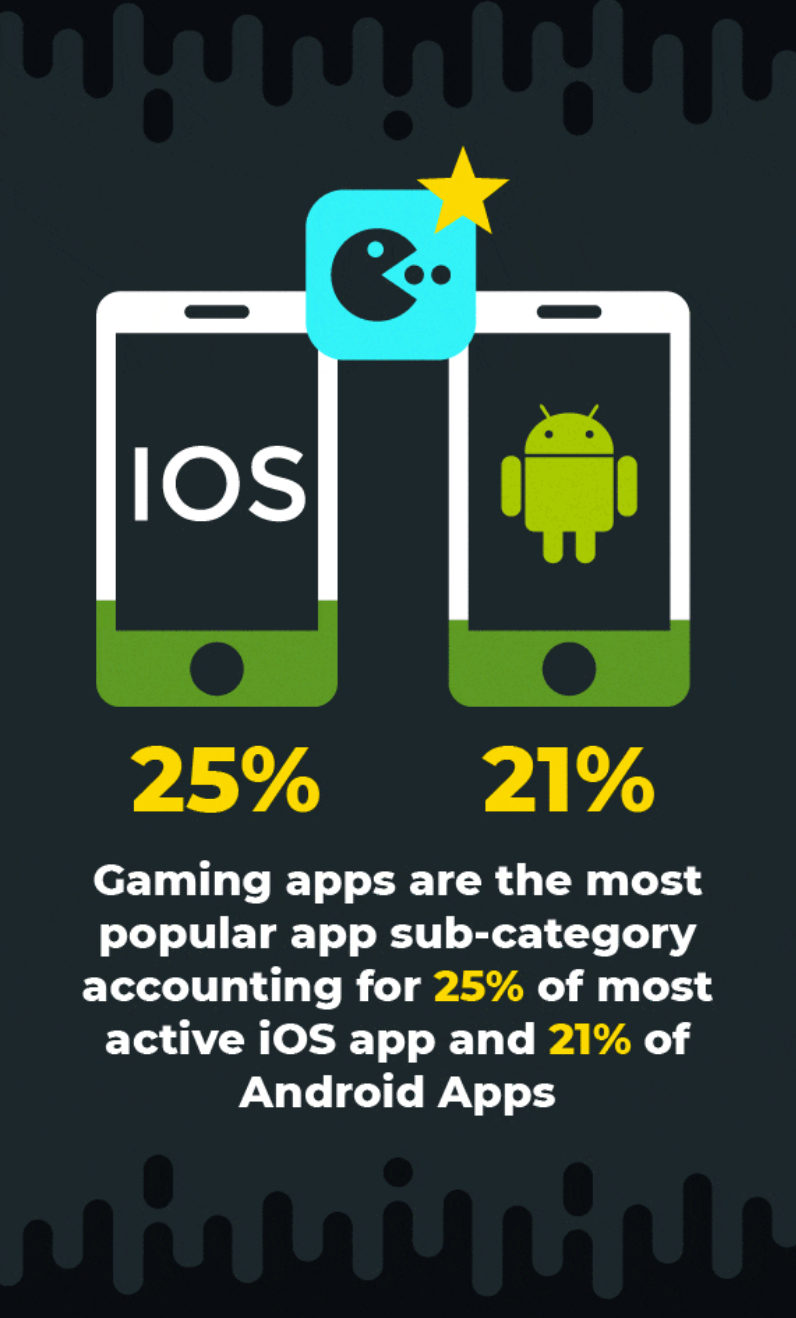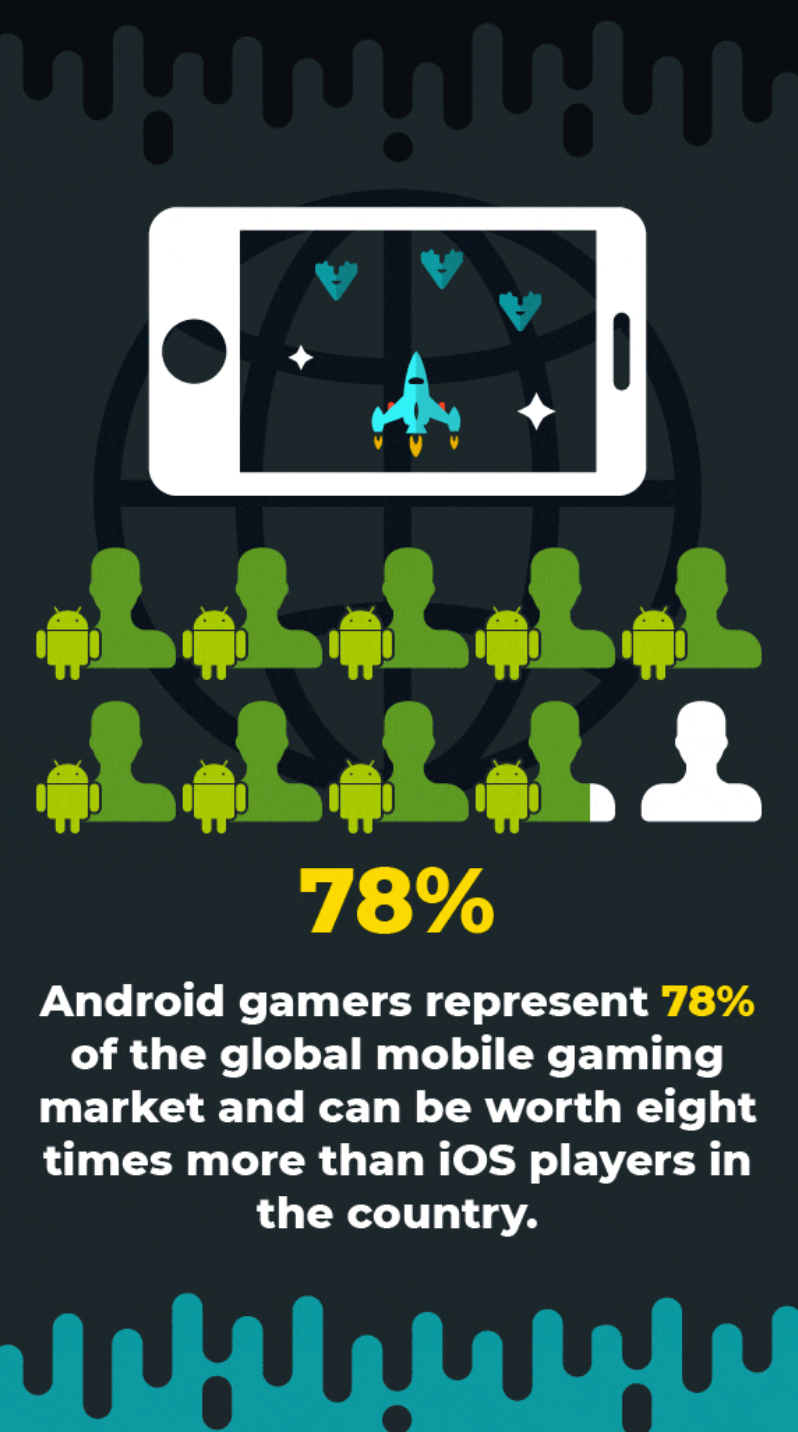In-line with the age of digitalization, the online gaming industry is growing at an exponential rate. As one would expect, this has created a plethora of innovative revenue streams for gaming developers to monetize their designs.
To put things into perspective, a recent Global Games Market Report claims that by the end of 2018, more than 2.3 billion enthusiasts will have spent an estimated $137 billion on games.
This will result in an unprecedented increase of $16.2 billion from the year previous, or 13.3%.
Innovative technologies, such as Augmented & Virtual Reality or Blockchain are striving to cover the whole digital market, especially the mobile gaming sector.

Mobile Gaming
Within the aforementioned Global Games Market Report, it was concluded that mobile gaming is once again leading the way. Within a ten-year period, the sector has gone from being the smallest gaming segment to the largest. In fact, it is estimated that by the year 2021 the mobile gaming sector will be worth close to $100 billion in annual revenues.
Interestingly, the vast majority of financially successful mobile games are actually free to download. End users have the ability to earn points, which in turn gives them additional privileges — such as upgrading a character or simply being able to proceed to the next level.
However, if gamers do not have the required amount of points that they need, they have the option to purchase them directly from their phone. With payment methods such as a debit/credit card or PayPal now easily compatible with on-the-go purchases, this is an excellent way for developers to monetize.
One such example is the hugely popular mobile game Clash of Clans. Although the game is free to download, it reportedly generates close to $60 million in monthly revenues, just from users purchasing the game’s in-house currency. This goes to show that innovative gaming developers have recognized that significant financial rewards are there for the taking, even when users are not initially charged to download the app.


Mobile games will hog more than half of global video games revenue as of 2019
Whereas once mobile games were seen as the poor relatives of the video game world, they are now its main and fastest-growing source of revenue.
In emerging markets, app-store games have hogged more than half of video game revenues since 2016, whereas in developed markets, they will not quite reach the halfway mark throughout the forecast period. Although developed markets are where most revenue from app-store games is concentrated — about two-thirds last year — they are also where console and PC penetration is at its greatest.
App-store games continue to register impressive revenue and download growth rates — 23% and 14%, respectively, in 2017. They also continue to comprise the lion’s share of mobile app revenue (excluding that not transacted via app stores, such as app-based online shopping). They are creating demand in new mobile technology areas, such as virtual and augmented reality.
With the growth curve for console games revenue pretty much flat, and that for PC games nowhere as bullish as that for mobile games, traditional video game publishers are increasingly diversifying into mobile.
Some publishers are collaborating with mobile studios to roll out mobile versions of console and PC hits, as Nintendo has done with Niantic for Pokémon Go and Bluehole has done with Tencent for PlayerUnknown’s Battlegrounds in China. Others are acquiring their way into mobile. For example, Tencent has built up a large portfolio of partly or wholly owned subsidiaries, including Glu Mobile, Netmarble, Pocket Gems, and Supercell.
Revenue per download for app-store games is on the up, due to both
- a drop in downloads per smartphone user as markets reach a saturation point and app marketers seek higher-quality installs
- arise in monetization as developers become savvier about how to squeeze revenue from games, especially in the all-important freemium variety.
On the monetization front, new models are emerging, such as sponsored locations for AR games like Pokémon Go, and subscriptions, in the case of casual games aimed at young children, such as coloring-book apps and learn-through-play games, which benefit parents who want the peace of mind of not having their kids exposed to hidden in-app purchases.
Whereas 10 years ago the revenue of top-grossing mobile game companies was counted in millions, it is now counted in billions. It predicts that global end-user spend and in-app-advertising app-store games revenue combined will be worth $87bn in 2018 and $119bn in 2022.


eSports
eSports, the art of ultra-competitive gaming between two or more professional players, is also going through a period of rapid growth. According to Forbes, eSports revenues are expected to surpass $900 million by the end of 2018, illustrating an impressive increase from the $655 million the industry generated the year previous.
The vast majority of the aforementioned financial growth consists of advertising, sponsorships and media rights. Moreover, developers are also paid a fee when tournaments include one of their gaming titles. A further avenue that could play a role in the monetary growth of eSports is the ability for players to wager on the games they play.
Although this will initially present a range of regulatory hurdles, especially with regards to gambling licensing, there are already a variety of operators looking to target such a model.
Blockchain-based games
To continue on from the above discussion, a reasonably new addition to the industry is that of blockchain-based gaming. By utilizing the decentralized characteristics of the blockchain protocol, gaming developers have the potential to cut out of the middle-man and market their designs directly to the consumer.
Moreover, it also provides a seamless barrier to entry, as there is no requirement to inject resources in the hosting of an independent server.
In terms of monetization, blockchain-based gaming has the opportunity to install a similar model to that of mobile gaming, insofar that users are not charged a fee to play but they do have the option of purchasing additional in-game products. However, the key difference is that instead of using conventional payment methods such as a debit or credit card, users pay with cryptocurrencies.
The most interesting is that players can monetize their gaming experience and in-game items what they can trade on internal or external markets like Worldopo have been done.
Crypto-based Mobile Game with the capability of transforming the gaming experience into real profit.
“Worldopo” is a crypto-economical strategy game in the real world based on the blockchain tech, Augmented Reality and Geopositioning. It is a building simulator set on a real world map where every player can buy or rent a piece of land, start raising in-game structures and mining farms around the world so as they may build up their capital. The game encourages an economic stimulus and encompasses gameplay through the implementation of its own cryptocurrency WPT, which players may mine within the game.
By the way, the Mobile game is available for download in both the Appstore and the Google Play store, (Android and IOS devices).
The Verdict?
It appears that the online gaming industry has a bright future, not least because developers have recognized the huge demand for in-game purchases. Judging by the year-on-year growth attributable to such a business model, consumers see no problem in spending additional money in order to obtain rewards that otherwise, would be difficult to get through game-play points alone.
However, with the age of digitalization now transitioning over the world of blockchain technology, could we soon see a more equal playing field — whereby both developers and the end-user have the chance to benefit. Are you the next who is going to try and use the opportunity of gaming experience monetization?
More news


09.04.2021
AI Business Fields


09.04.2021
Investing, Empowering Token-Based Economies!


09.04.2021
5 Games that will Get You into Cryptocurrency